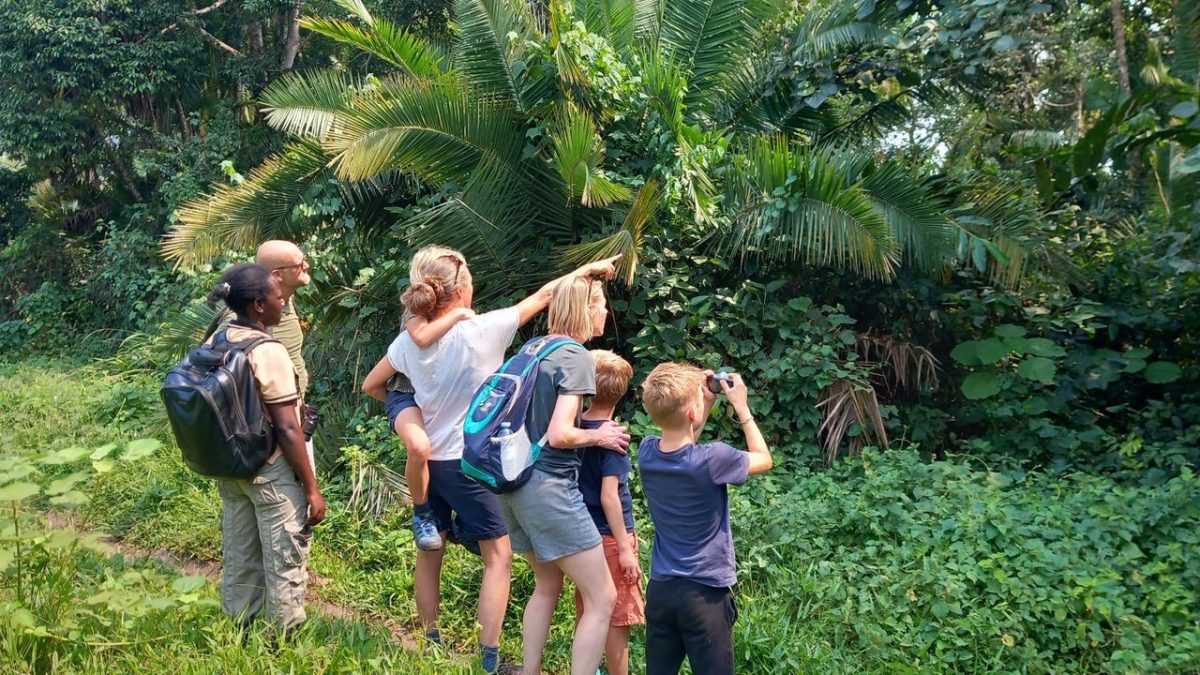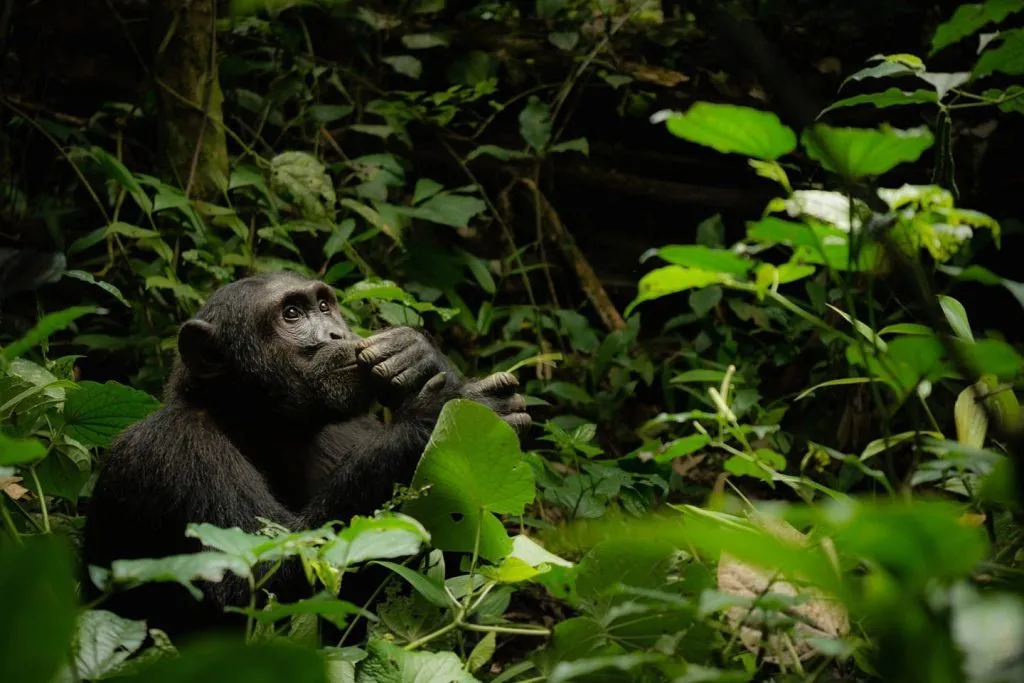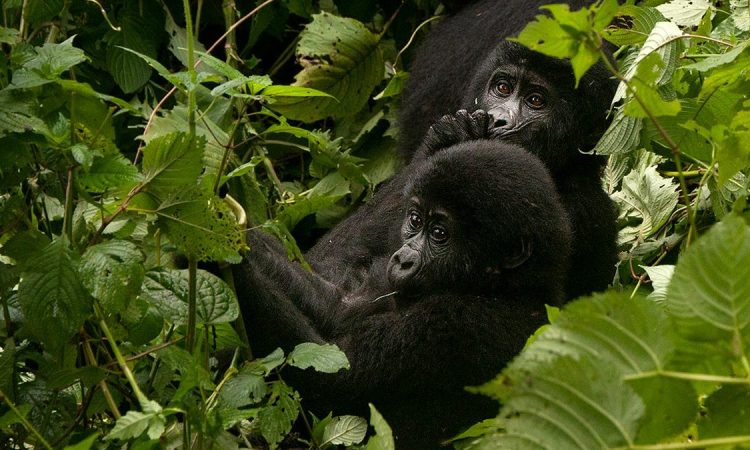Table of Contents
TogglePeople often ask “Is It Safe To Travel To Uganda? Yes, it is – Uganda for long has larked in the shadow of its tragic past of civil wars and bad leaders, so much so that many people still believe the dictator Idi Amin is still the president of Uganda, a man who died decades ago.
For over 30 years now Uganda has enjoyed peace with no war going on in her land. President Museveni’s government has built a formidable military that has effectively protected the country from insecurity both from within and out.
And with the constant development of Uganda’s safari industry and regular lodge and camp openings, the message is loud and clear: Uganda is thriving and open for business. And there’s a reason it remains one of Africa’s most sought-after safari destinations: the wildlife viewing is incredible year-round, the people friendly and the logistics easy.
Safety in Uganda (Uganda Travel Advisory)

In general, reports from embassies on travel in developing countries tend to be overly cautious. In the case of Uganda, it is disheartening to see that specific incidents are highlighted with little respect to the local context, resulting in a distorted view of the actual safety situation.
Our professional and personal experience of Uganda has always been that of a safe country to visit and explore with friendly and welcoming local people.
Unluckily, Uganda has faced some terrorist attacks in the region of southwestern Uganda. These random attacks were carried out by ADF, a group of rebels operating from the Eastern Congo (DRC), thriving on the rivalry and unrest in the Ugandan-Rwanda and DRC border.
While it is very sad, we wish people could put these events in perspective. Several countries around the world, including European countries, have experienced terrorist attacks. Does this imply you are not visiting, let us say, Brussels, Prague, or Paris anymore?
Or let us compare safety in Uganda with the United States. Many cities in the USA are disrupted by weaponized gangs, a situation that is unheard of in Uganda. Still, people don’t depict the USA as an unsafe place to visit, and the Embassies don’t advise against traveling to the United States.
But when there is an attack near Uganda’s border with Congo, embassies advise against essential travel to any part of Uganda. We can only hope that terrorists and media reporting never hold people back from doing what they love: traveling. Tourism is usually one of the first economic sectors hit hardest as tourists shy away, whereas many depend on it for their livelihoods.
Crime in Uganda
Regarding crimes in Uganda, we advise you to use your head and be street-smart. Recognize that you are traveling in a country where the general population may have less financial means. To reduce the risk of theft, ensure you park your vehicle in secure areas, leave valuable items, such as diamond rings, at home, and avoid leaving valuables exposed in your hotel or lodge room. While hotel theft is generally not a major concern in Uganda, it’s best to take precautions just in case.
Road Safety in Uganda
Tulambule has been exploring Uganda by road for many years now. You should be safe on a road trip in Uganda, and the experience is fun and rewarding as long as you take your time, be aware of potholes, and avoid driving at night.
Is Kampala Safe?
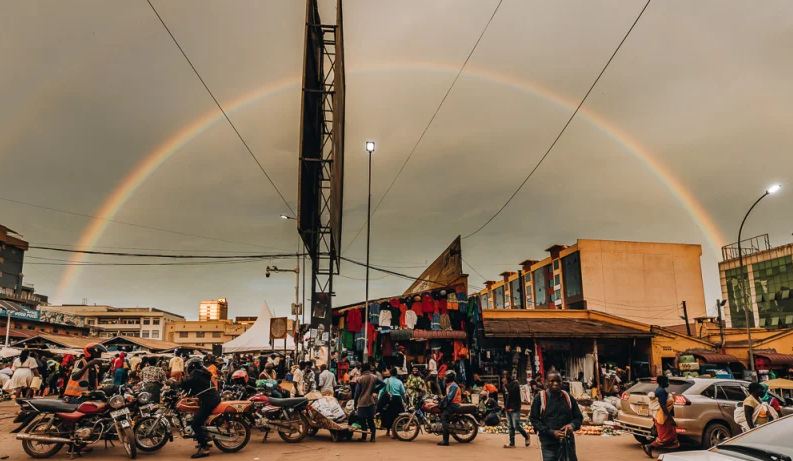
Petty crimes including pickpocketing, car break-ins, phone snatching, and mugging would be your biggest safety concern in Kampala, more so in the congested spaces of the city and the ghettos.
Visitors on guided activities are mostly shielded from these risks and their guide will ensure their safety. Uganda like many other democracies across the globe occasionally goes through short periods of political change. This is also centered around Kampala, far from the country’s sensational Uganda safari destinations.
In fact, in some instances after landing at Entebbe International Airport, you may not visit Kampala and you head directly to Bwindi Impenetrable Forest, Murchison Fall National Park, Kibale National Park, or Queen Elizabeth National Park.

Uganda Health & Safety Travel Tips
As with travelling anywhere in the world, travellers need to be vigilant to avoid any unnecessary hassles. Here are some general health and safety tips for travelling around Uganda:
- Before you leave for Uganda, you’ll need to see your doctor for a prescription of malaria pills because Uganda is a high-risk malaria destination. When you take your own medication, you eliminate the risk of not being able to find them at local pharmacies.
- Be sure to pack plenty of insect repellent.
- When you arrive in Uganda, be conscious of your belongings. Never leave anything unguarded and only take out your cameras or other valuables when necessary.
- In some towns like Kampala, pickpocketing is sometimes an issue; it’s a good idea to be alert in busy places like markets.
- Make copies of all your travel documents and keep them in your luggage.
- Our safari Experts will provide all information about what areas are to be avoided and guide you every step of the way, leaving you to focus on what matters, reveling in the experience.
You may also like: Vaccinations You Need to Travel to Uganda
Food Hygiene In Uganda
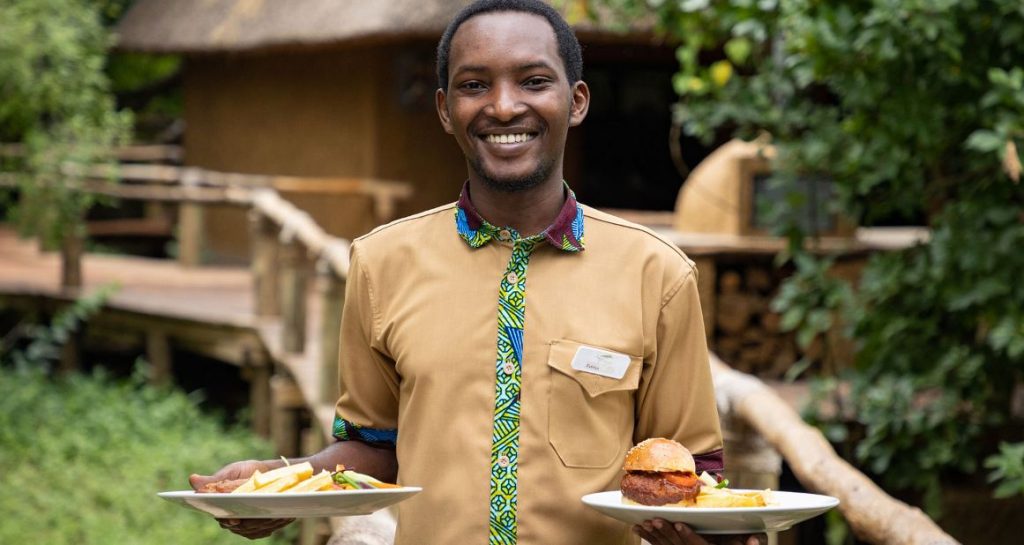
When you are on a Uganda safari at top lodges and safari camps, you can rest assured that food quality will be of the highest standard.
You will be bowled over by quality and local delicacies. If you are passing through cities and towns, it’s advisable to be more aware of your food choices like meat, unpasteurised dairy products, and raw foods such as fruits or salads that can’t be peeled.
A good rule of thumb is to always choose to eat well-cooked meals, and to use your discretion on the sanitation and hygiene of any establishment you visit. Avoid any restaurants or food vendors that appear unclean or don’t have many customers. Our Uganda Safari Experts live by the ‘we know because we go’ ethos and are valuable sources of personal recommendations for where and what to eat, making sure that your travel journey is seamless from start to end.
Is Tap Water Safe To Drink In Uganda?
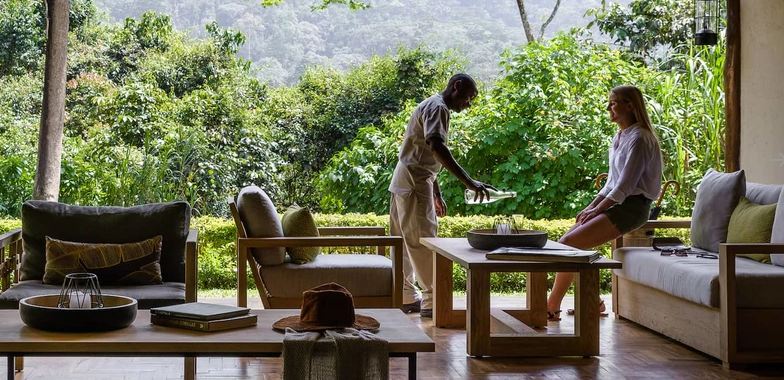
Uganda is a country that has been identified as having unsafe tap water for drinking. We advise all our travellers to always drink bottled water, which is cheap and readily available.
Many Uganda safari lodges, camps, and hotels provides complimentary bottled water, ready for you in your room, safari tent, or when you are setting off on game drives.
Depending on where you choose to stay, you will be given a reusable bottle that can be filled up with filtered water as and when you need it. We also recommend that you use bottled water to brush your teeth, particularly in the cities and towns.
Is Uganda safe for female tourists?
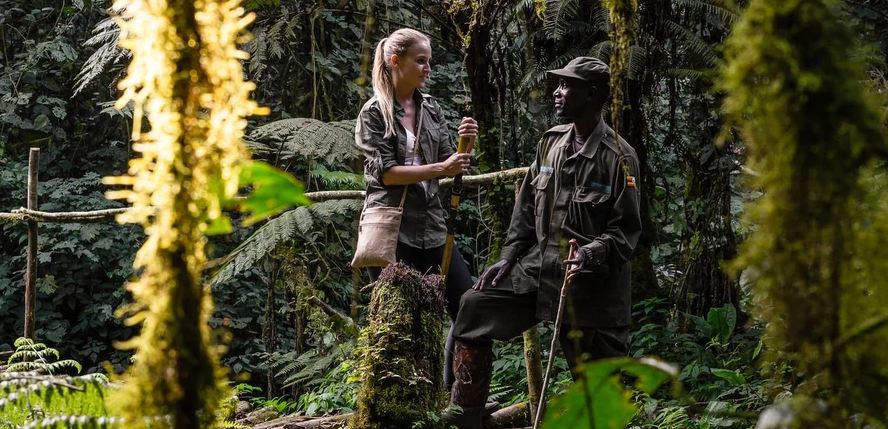
Uganda is safe for female solo travelers; in fact, most parts of Uganda are well-suited for solo travel in general. The locals are friendly and hospitable, and English is widely spoken.
As a female solo traveler, it is always best to adopt the safety practices you would travelling anywhere in the world, like not walking alone at night in cities, or avoiding deserted beaches.
As Uganda is a safari-focused destination, many female solo travelers have to enjoy shared game drives or group safaris for the social element, or to simply go it alone with a guide.
Whatever the desire for a legendary female solo traveler journey, our Uganda Safari Experts can tailor perfectly to preferences and budget.
Safety On A Safari In Uganda
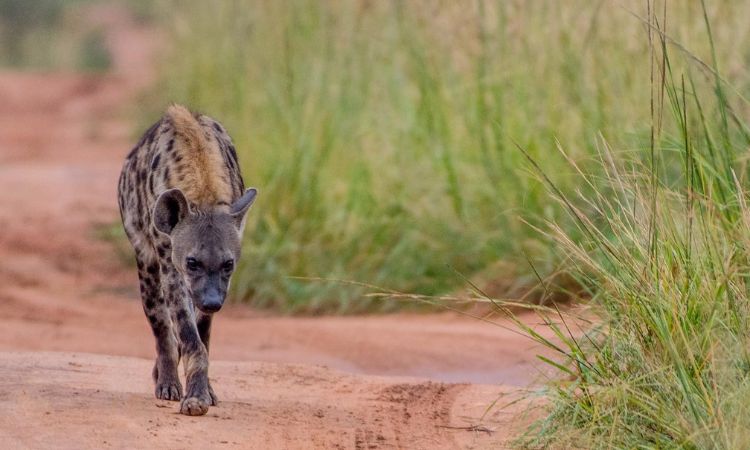
1. Take Careful Note Of Your Safety Briefing On Arrival.
Many safari lodges are unfenced and Uganda wildlife will wander onto the property. Though these lodges are constantly patrolled and perfectly safe, always remember that the creatures you may encounter are entirely wild and will react defensively if you appear to be a threat, or aggressively if you act like an easy meal. Never approach a wild animal like a gorilla or attempt to touch one.
2. Be Malaria Savvy
Use your room’s mosquito nets and ceiling fans and apply insect repellent to exposed skin in the early mornings and late afternoons (before your Uganda safari game drives in the Savannah parks) and again in the evenings before dinner.
3. Always Listen To Your Guide
He/she knows how to keep you safe in Uganda but can only do that if you listen to instructions. The great beauty of a Uganda safari tour is experiencing the wilderness as naturally as possible. Be mindful and realistic about encountering potentially dangerous animals, bugs and exposure to the elements.

